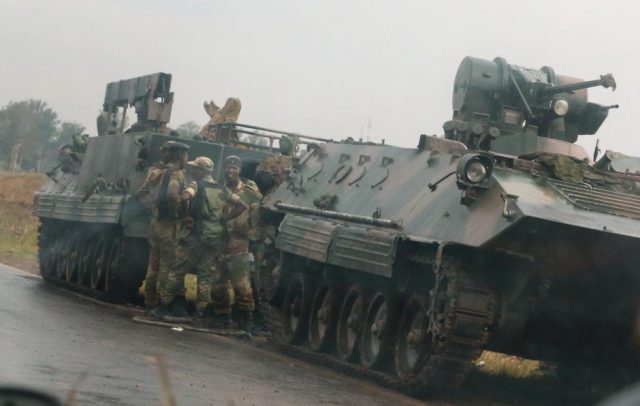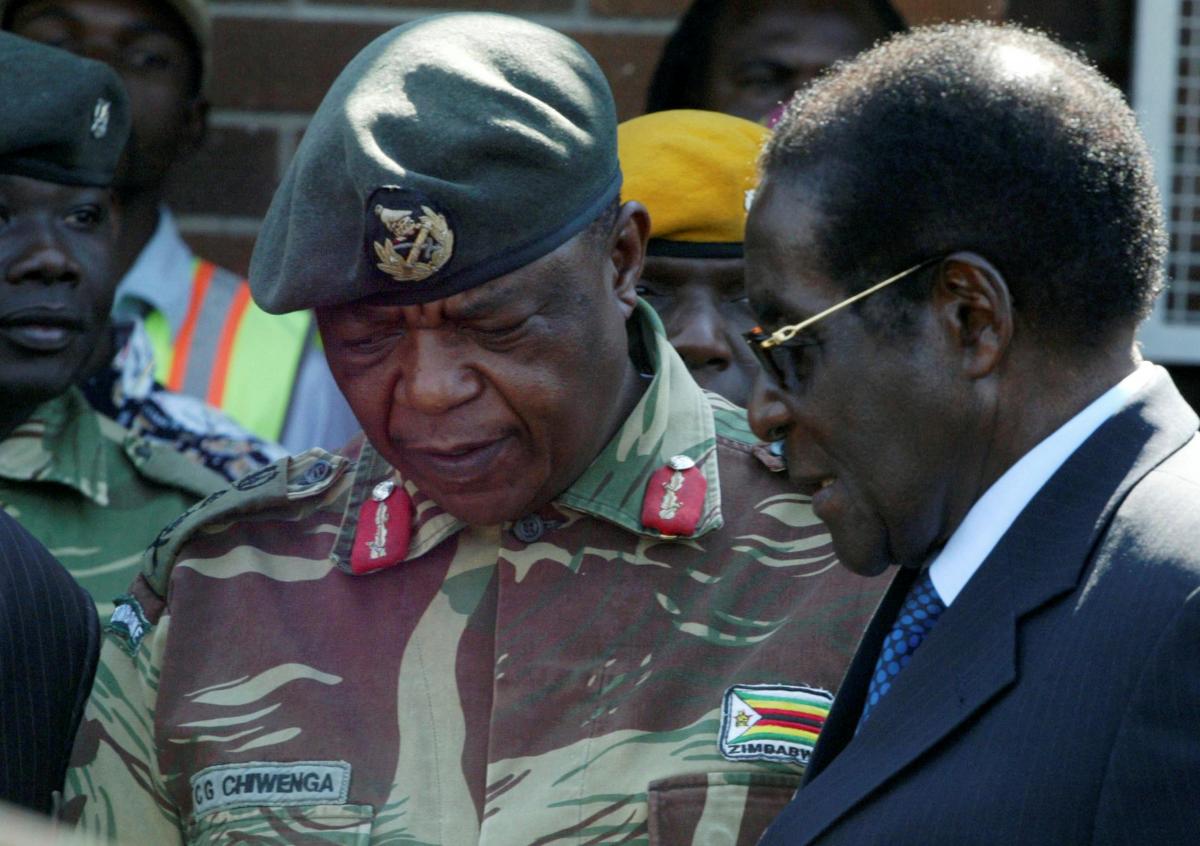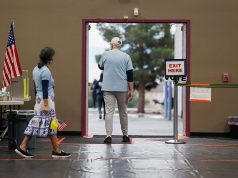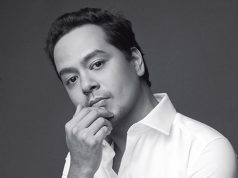
HARARE — (UPDATE – 12:15 p.m.) Zimbabwe’s military on Wednesday confirmed that it had seized power in a targeted assault on “criminals” around President Robert Mugabe, but gave assurances that the 93-year-old leader and his family were “safe and sound.”
In a short broadcast on national television, which was seized overnight by soldiers, a spokesman for the military said it expected “normalcy” to return as soon as it had completed its “mission.”
Earlier, soldiers seized the state broadcaster after Mugabe’s ruling ZANU-PF party accused the head of the military of treason.
Just 24 hours after military chief General Constantino Chiwenga threatened to intervene to end a purge of his allies in Mugabe’s ZANU-PF, armored personnel carriers were seen on main roads around the capital.
Aggressive soldiers told passing cars to keep moving through the darkness. “Don’t try anything funny. Just go,” one barked at Reuters on Harare Drive.
Two hours later, soldiers overran the headquarters of the ZBC, Zimbabwe’s state broadcaster and a principal Mugabe mouthpiece, and ordered staff to leave. Several ZBC workers were manhandled, two members of staff and a human rights activist said.
Shortly afterwards, three explosions rocked the center of the southern African nation’s capital, Reuters witnesses said.
Despite the troops stationed at locations across Harare, there was no word from the military as to the fate of Mugabe, Zimbabwe’s leader of the last 37 years and the self-styled ‘Grand Old Man’ of African politics.

In contrast to his elevated status on the continent, Mugabe is reviled in the West as a despot whose disastrous handling of the economy and willingness to resort to violence to maintain power destroyed one of Africa’s most promising states.
In the only official word from the government, Isaac Moyo, Zimbabwe’s ambassador to neighboring South Africa, earlier dismissed talk of a coup, saying the government was “intact” and blaming social media for spreading false information.
“There’s nothing really happening. They are just social media claims,” Moyo told Reuters.
The Southern African nation has been on edge since Monday when Chiwenga, commander of the Zimbabwe Defense Forces, said he was prepared to “step in” to end a purge of supporters of sacked vice president Emmerson Mnangagwa.
Only a few months ago, Mnangagwa, a former security chief nicknamed “The Crocodile,” was favorite to succeed his life-long political patron but was ousted a week ago to pave the way for Mugabe’s 52-year-old wife Grace to succeed him.
‘Politics over the gun’
Chiwenga’s unprecedented statement represented a major escalation of the struggle to succeed Mugabe, the only leader Zimbabwe has known since it gained independence from Britain in 1980.
Mugabe chaired a weekly cabinet meeting in the capital on Tuesday, officials said, and afterwards ZANU-PF said it stood by the “primacy of politics over the gun” and accused Chiwenga of “treasonable conduct … meant to incite insurrection.”
The previous day, Chiwenga had made clear the army’s refusal to accept the removal of Mnangagwa – like the generals a veteran of Zimbabwe’s anti-colonial liberation war – and the presumed accession of Grace, once a secretary in the government typing pool.
Local government minister Saviour Kasukuwere, a leading figure in her relatively youthful ‘G40’ faction, refused to answer Reuters questions about the situation in Harare. “I‘m in a meeting,” he said, before hanging up shortly before midnight.
Army, police and government spokesmen refused to answer numerous phone calls asking for comment.
‘Defending our revolution’
Neither Mugabe nor Grace have responded in public to Chiwenga’s remarks and state media did not publish his statement. The Herald newspaper posted some of the comments on its Twitter page but deleted them.
The head of ZANU-PF’s youth wing, which openly backs Grace, accused the army chief of subverting the constitution.
“Defending the revolution and our leader and president is an ideal we live for and if need be it is a principle we are prepared to die for,” Youth League leader Kudzai Chipanga said at the party’s headquarters in Harare.
Grace Mugabe’s rise has brought her into conflict with the independence-era war veterans, who enjoyed privileged status in Zimbabwe until the last two years when they spearheaded criticism of Mugabe’s handling of the economy.
In the last year, a chronic absence of dollars has led to long queues outside banks and an economic and financial collapse that many fear will rival the meltdown of 2007-2008, when inflation topped out at 500 billion percent.
Imported goods are running out and economists say that, by some measures, inflation is now at 50 percent a month.
According to a trove of intelligence documents reviewed by Reuters this year, Mnangagwa has been planning to revitalize the economy by bringing back thousands of white farmers kicked off their land nearly two decades ago and patching up relations with the likes of the World Bank and IMF.
Whatever the outcome, analysts said the military would want to present their move as something other than a full-blown coup to avoid criticism from an Africa keen to leave behind the Cold War continental stereotype of generals being the final arbiters of political power.
“A military coup is the nuclear option,” said Alex Magaisa, a UK-based Zimbabwean academic. “A coup would be a very hard sell at home and in the international community. They will want to avoid that.”









